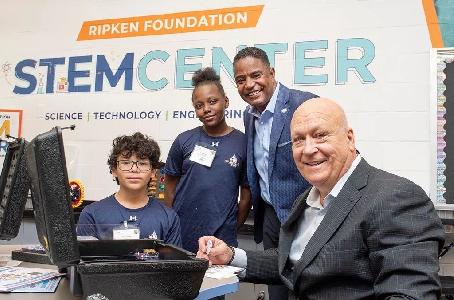Even when the motivation finally arrives to go, gyms can be isolating.
A host of machines often feature people wearing headphones, and at many gyms no one is around to evaluate whether you’re working out properly. Plus, they’re expensive.
Many workout enthusiasts look to change the perception of the typical gym in order to get people in the door. For the team of Johns Hopkins undergrads behind ShapeU, however, it’s about changing the experience.
Small groups of people encourage you to do more than you can on your own.
Using data analytics that account for fitness goals, availability and other factors, ShapeU’s software platform organizes people who want to go to the gym into small groups.
“Small groups of people encourage you to do more than you can on your own,” said ShapeU CEO Seal-Bin Han, a JHU sophomore majoring in electrical and computer engineering.
Once organized into groups, they’re paired with a personal trainer who leads workout sessions once a week. Splitting the trainer’s time lowers the cost of the session to under $10 per person. During the week, the personal trainer also provides a fitness analysis to each member that provides a look at how their workouts are progressing, and check-up on indicators like blood pressure and Body Mass Index (BMI).
“All of these value-adds hopefully would be better than what you experience at your gym,” Han said.
Their work is already spreading quickly on the Johns Hopkins campus. ShapeU has a partnership with the Ralph S. O’Connor Recreation Center, has formed six workout groups and has partnerships with 13 personal trainers, Han said.
They’re also working with the Bloomberg School of Public Health’s Weight Management Center to integrate more strategies to help people who are overweight. The partnership gets to the heart of the issue the company is trying to address: cardiovascular disease, which remains the leading cause of death in the U.S.
“It’s entirely preventable in a lot of cases, but people are still dying from it more than cancer,” Han said.
We're all 19. We're all college undergrads. I think that goes to show how much energy the team has.
The concept and work the group has put in earned ShapeU a spot in the 2015 AccelerateBaltimore cohort. The startup will receive $25,000, space at the Emerging Technology Centers’ Highlandtown campus and access to a network of mentors and other connectors over the next 13 weeks. They were also selected as Social Innovation Lab cohort members in the fall.
Han, who also helped to found the World Youth Initiative and the data analytics firm Tier5, believes the ShapeU platform’s scheduling and evaluation capabilities can be integrated into pre-existing gyms beyond campus.
The company has kept it lean so far, benefiting from having a small team who are all able to code, and willing to do the work in addition to being full-time students. Upon meeting the other AccelerateBaltimore members, however, Han did notice one difference from the other startup teams.
“Of the people in the room, we were the youngest ones,” he said. “We’re all 19. We’re all college undergrads. I think that goes to show how much energy the team has.”
Join the conversation!
Find news, events, jobs and people who share your interests on Technical.ly's open community Slack

Baltimore daily roundup: The city's new esports lab; a conference in Wilmington; GBC reports $4B of economic activity

Baltimore daily roundup: Find your next coworking space; sea turtle legislation; Dali raided and sued

Baltimore daily roundup: Johns Hopkins dedicates The Pava Center; Q1's VC outlook; Cal Ripken inaugurates youth STEM center


